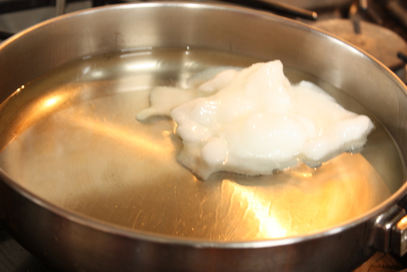Foods to Avoid
 There seems to be an unending list of foods that your physician may recommend for you to avoid. Researchers are still discovering how purine levels of specific foods work in the body and how to regulate uric acid levels, but there is plenty of information on certain foods that a sufferer of gout should definitely avoid. Foods such as sweets (candy, cake, cookies, pies, etc.), foods that are high in fat, and foods that are high in omega-3 fatty acids are just a few on the list to avoid. Omega-3 fatty acids are actually a great way to reduce inflammation, however they typically come in products that have high levels of purines. Food products containing high-fructose corn syrup can exacerbate symptoms of gout. Saturated fats such as red meats and other high-fat dairy products result in higher levels of inflammation in the body. Liver, kidney, and “sweetbreads” contain high levels of purines which result in high levels of uric acid. Seafood such as sardines or herring contain omega-3 fatty acids but also contain high levels of purines (as mentioned earlier). Other seafoods to avoid include tuna and mackerel.
There seems to be an unending list of foods that your physician may recommend for you to avoid. Researchers are still discovering how purine levels of specific foods work in the body and how to regulate uric acid levels, but there is plenty of information on certain foods that a sufferer of gout should definitely avoid. Foods such as sweets (candy, cake, cookies, pies, etc.), foods that are high in fat, and foods that are high in omega-3 fatty acids are just a few on the list to avoid. Omega-3 fatty acids are actually a great way to reduce inflammation, however they typically come in products that have high levels of purines. Food products containing high-fructose corn syrup can exacerbate symptoms of gout. Saturated fats such as red meats and other high-fat dairy products result in higher levels of inflammation in the body. Liver, kidney, and “sweetbreads” contain high levels of purines which result in high levels of uric acid. Seafood such as sardines or herring contain omega-3 fatty acids but also contain high levels of purines (as mentioned earlier). Other seafoods to avoid include tuna and mackerel.
One particular study showed that participants who consumed 5 to 6 servings of fructose-sweetened drinks per week were more likely to have gout. Fructose is a sugar found in fruits and vegetables and foods that are sweetened with corn syrup. Those with low-sugar diets are much less likely to develop gout compared to those with high-sugar diets. Foods such as cereal, bread, soft drinks, and fruit juices that are high in fructose should be avoided to reduce symptoms of gout. Research claims that fructose which appears naturally in fruits and vegetables should not be avoided completely, as they are part of a healthy diet.
There also seems to be a correlation between gout and alcohol consumption, however, it may be due to what alcoholic drinks contain rather than the alcohol itself. Beer itself contains not only alcohol, but also high levels of purines. Standard beers have an alcohol content of about 1 gram per 100 mL, but they also contain about 8 mg purines per 100mL. Some, especially low-alcoholic beers, contain even more proteins than higher alcoholic beers. Fermentation is suggested to be the culprit when it comes to creating purines in beer so the avoidance of beer all together may eventually be your best bet. Mixed cocktails may contain additives, preservatives, and sugars that can lead to high levels of uric acid in the body, even for those who only occasionally drink during social gatherings. Abstaining from alcoholic drinks is not an easy task, but it may save you from a painful and debilitating case of gout. Another very good reason for refraining from alcoholic beverages is the simple fact that they increase dehydration. When you are dehydrated, you increase the amount of uric acid in your blood. When this happens, you put yourself at a greater risk of developing gout. 8 cups of water each day is the recommended amount for staying hydrated.

